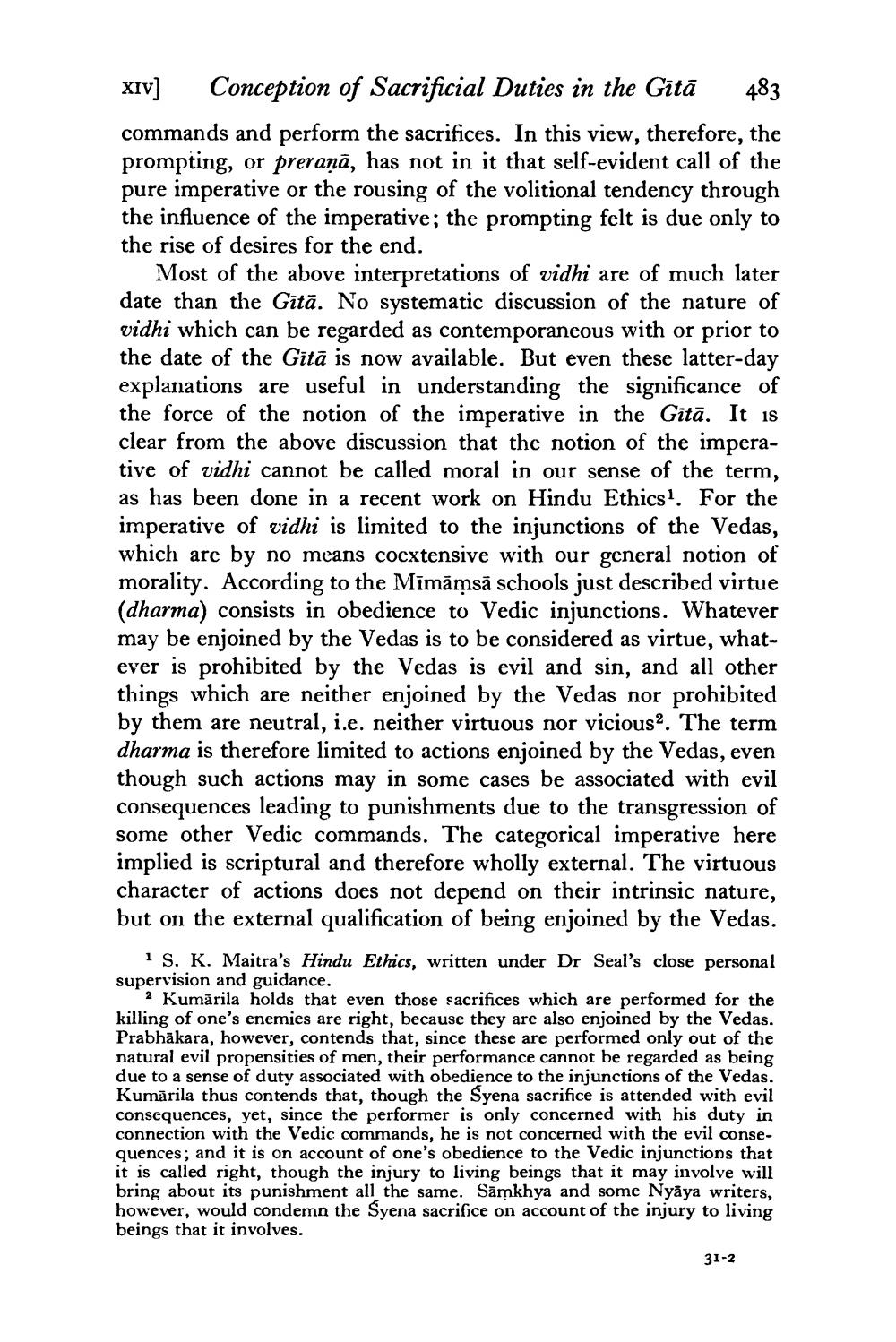________________
XIV] Conception of Sacrificial Duties in the Gītā 483 commands and perform the sacrifices. In this view, therefore, the prompting, or preraņā, has not in it that self-evident call of the pure imperative or the rousing of the volitional tendency through the influence of the imperative; the prompting felt is due only to the rise of desires for the end.
Most of the above interpretations of vidhi are of much later date than the Gītā. No systematic discussion of the nature of vidhi which can be regarded as contemporaneous with or prior to the date of the Gitā is now available. But even these latter-day explanations are useful in understanding the significance of the force of the notion of the imperative in the Gitā. It is clear from the above discussion that the notion of the imperative of vidhi cannot be called moral in our sense of the term, as has been done in a recent work on Hindu Ethics. For the imperative of vidhi is limited to the injunctions of the Vedas, which are by no means coextensive with our general notion of morality. According to the Mimāmsā schools just described virtue (dharma) consists in obedience to Vedic injunctions. Whatever may be enjoined by the Vedas is to be considered as virtue, whatever is prohibited by the Vedas is evil and sin, and all other things which are neither enjoined by the Vedas nor prohibited by them are neutral, i.e. neither virtuous nor vicious. The term dharma is therefore limited to actions enjoined by the Vedas, even though such actions may in some cases be associated with evil consequences leading to punishments due to the transgression of some other Vedic commands. The categorical imperative here implied is scriptural and therefore wholly external. The virtuous character of actions does not depend on their intrinsic nature, but on the external qualification of being enjoined by the Vedas.
IS. K. Maitra's Hindu Ethics, written under Dr Seal's close personal supervision and guidance.
2 Kumārila holds that even those sacrifices which are performed for the killing of one's enemies are right, because they are also enjoined by the Vedas. Prabhākara, however, contends that, since these are performed only out of the natural evil propensities of men, their performance cannot be regarded as being due to a sense of duty associated with obedience to the injunctions of the Vedas. Kumārila thus contends that, though the Syena sacrifice is attended with evil consequences, yet, since the performer is only concerned with his duty in connection with the Vedic commands, he is not concerned with the evil consequences; and it is on account of one's obedience to the Vedic injunctions that it is called right, though the injury to living beings that it may involve will bring about its punishment all the same. Sāmkhya and some Nyåya writers, however, would condemn the Syena sacrifice on account of the injury to living beings that it involves.
31-2




